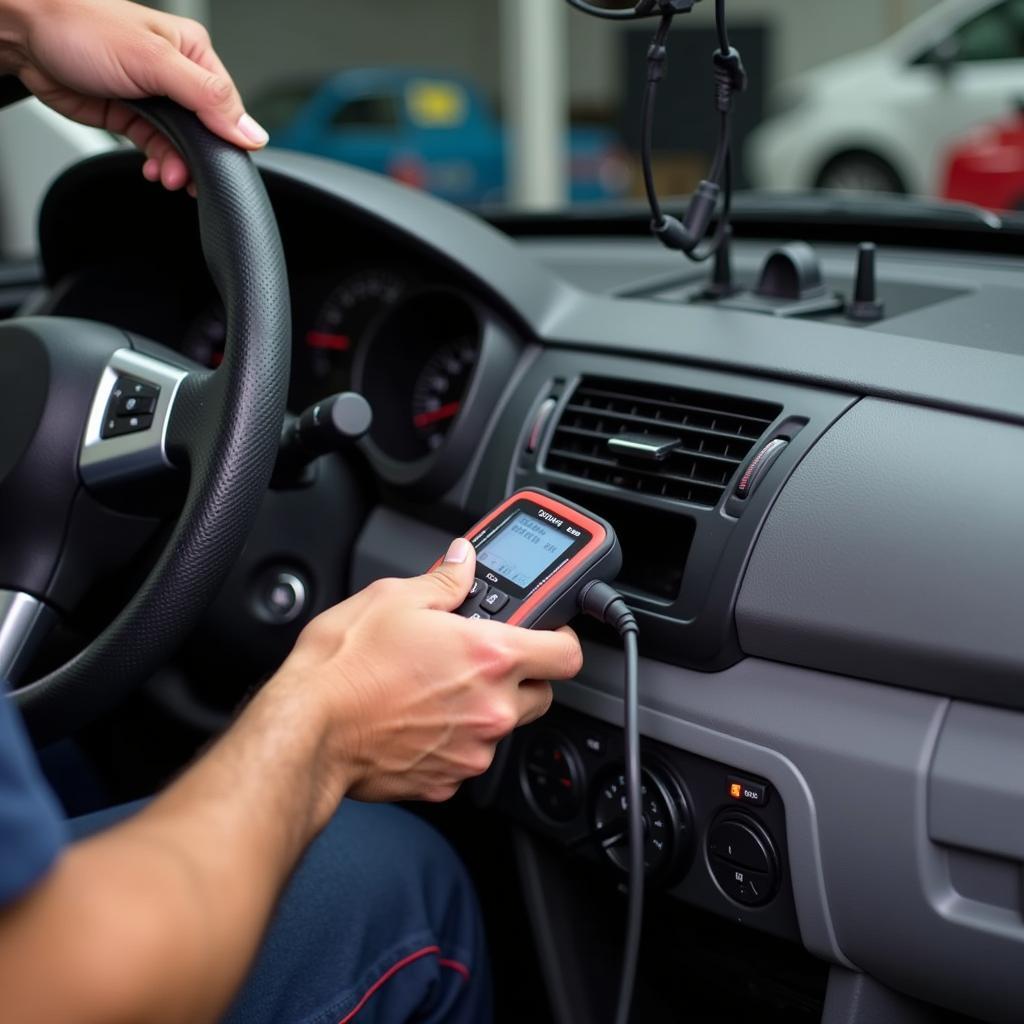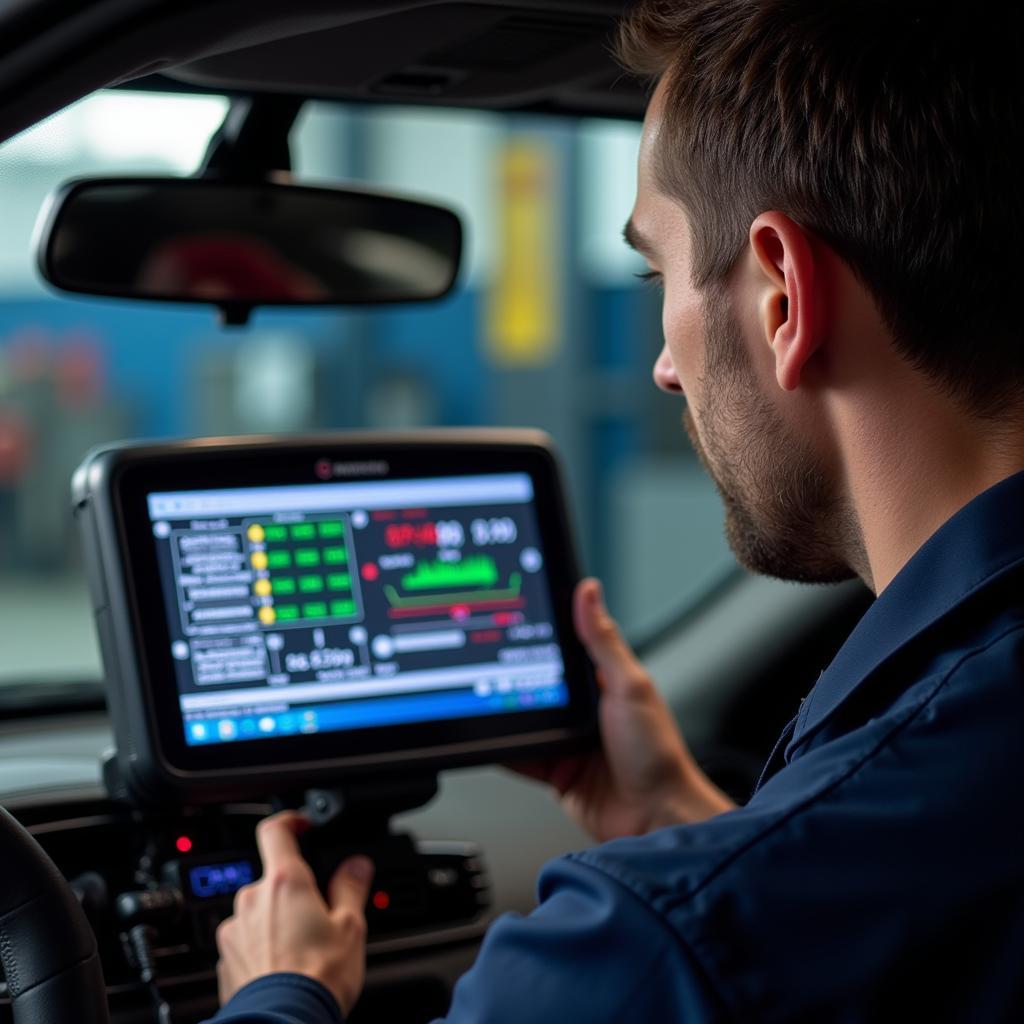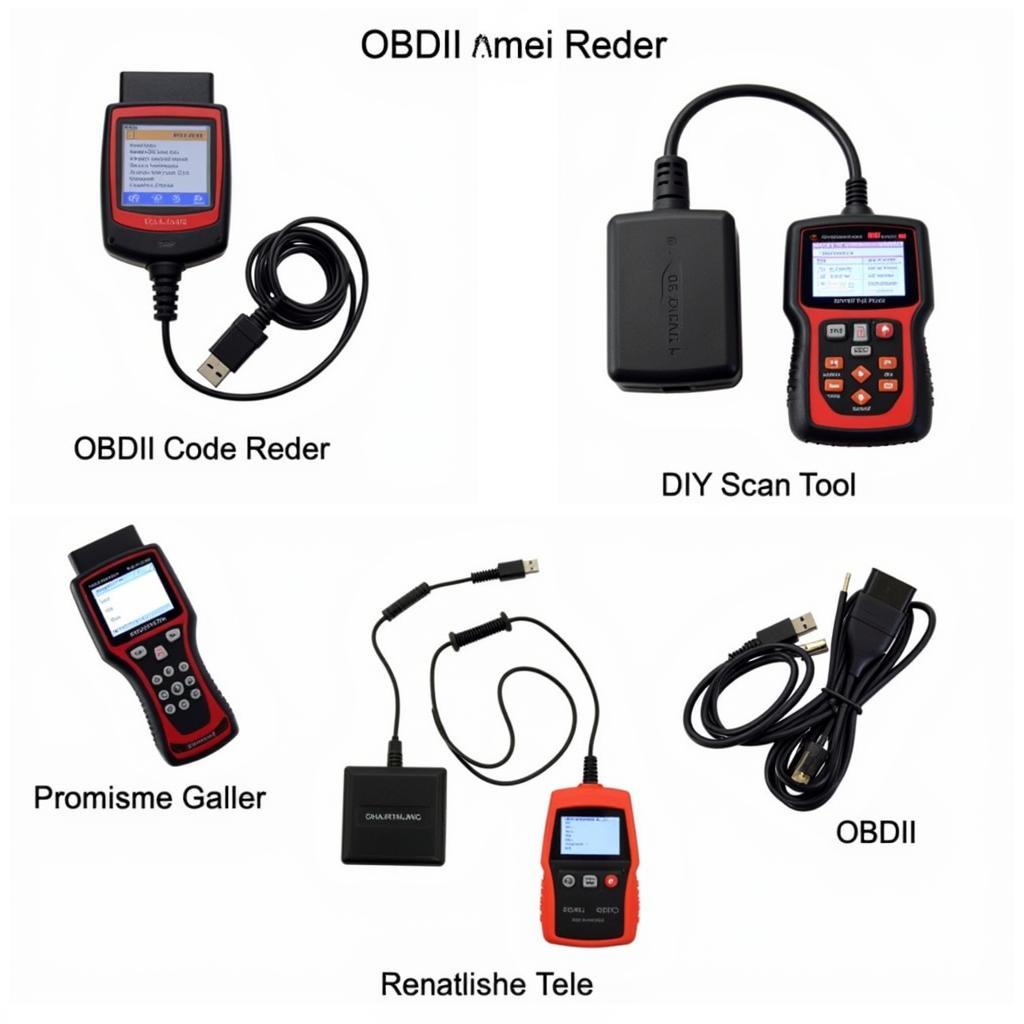Diagnostic testing is an essential part of modern car maintenance and repair. Whether you’re experiencing engine problems, warning lights on your dashboard, or simply want peace of mind, a Diagnostic Test Cars can pinpoint issues quickly and accurately. This comprehensive guide will delve into the world of car diagnostics, covering everything from what they are and why they’re crucial to understanding the results and choosing the right diagnostic tools.
 Car Diagnostic Test in Progress
Car Diagnostic Test in Progress
What is a Diagnostic Test for Cars?
A car diagnostic test is like a health check-up for your vehicle. It involves using a specialized tool, known as a diagnostic scanner or code reader, to communicate with your car’s computer system. This system, often referred to as the Engine Control Unit (ECU), continuously monitors various sensors and components throughout your car, storing valuable data about its performance.
When a problem arises, the ECU triggers a warning light on your dashboard and generates a specific Diagnostic Trouble Code (DTC). These codes, often cryptic combinations of letters and numbers, act as clues for mechanics to decipher the underlying issue. A diagnostic test retrieves these codes, providing valuable insights into the potential causes of your car’s symptoms.
Why are Diagnostic Tests Important?
Gone are the days of relying solely on a mechanic’s intuition to diagnose car problems. Diagnostic test cars offer numerous benefits for car owners and mechanics alike:
- Accurate Diagnosis: By reading DTCs and analyzing live data from your car’s sensors, diagnostic tests provide a precise understanding of the problem, eliminating guesswork and unnecessary repairs.
- Early Detection: Regular diagnostic tests can detect minor issues before they escalate into major and costly problems.
- Improved Repair Efficiency: Armed with precise diagnostic information, mechanics can streamline the repair process, saving you time and money.
- Increased Safety: Identifying and addressing issues related to brakes, airbags, and other safety-critical systems enhances the overall safety of your vehicle.
 Mechanic Analyzing Diagnostic Results
Mechanic Analyzing Diagnostic Results
Understanding Diagnostic Test Results
While a diagnostics tester for cars can retrieve valuable information, interpreting the results requires some technical expertise. Here’s a simplified breakdown of what you might see:
- Diagnostic Trouble Codes (DTCs): These codes are the starting point of any diagnosis. Each code corresponds to a specific problem area or component within your car’s system.
- Live Data Stream: Diagnostic scanners can display real-time data from various sensors, such as engine speed, coolant temperature, and oxygen sensor readings. Analyzing this data helps mechanics pinpoint the root cause of the problem.
- Freeze Frame Data: When a fault occurs, the ECU stores a snapshot of various parameters at that specific moment. This freeze frame data provides valuable context and helps diagnose intermittent issues.
Types of Diagnostic Tests for Cars
There are various types of diagnostic test machine for cars available, ranging from basic code readers to advanced professional-grade scanners.
- OBD-II Code Readers: These handheld devices are widely accessible and affordable, allowing car owners to read and clear basic DTCs.
- DIY Scan Tools: More advanced than basic code readers, DIY scan tools offer additional features like live data streaming and access to manufacturer-specific codes.
- Professional Diagnostic Scanners: Used by mechanics and dealerships, these high-end scanners offer comprehensive diagnostic capabilities, including bi-directional control, programming, and access to detailed repair information.
 Different Types of Car Diagnostic Tools
Different Types of Car Diagnostic Tools
Choosing the Right Diagnostic Tool
The ideal diagnostic tester for cars depends on your needs and technical expertise.
- For Basic Needs: If you’re a car enthusiast looking to understand and clear basic DTCs, an OBD-II code reader is a cost-effective option.
- For DIY Enthusiasts: For those who enjoy tackling car repairs themselves, a DIY scan tool offers a wider range of features and access to more detailed diagnostic information.
- For Professionals: Mechanics and technicians require the advanced capabilities of professional diagnostic scanners to perform comprehensive diagnostics, programming, and complex repairs.
Cost of Diagnostic Tests for Cars
The cost of diagnostic tests for cars can vary significantly based on several factors:
- Location: Labor rates for diagnostic tests tend to be higher in urban areas and at dealerships compared to independent mechanics.
- Complexity of the Issue: Diagnosing complex problems that require extensive testing and analysis will naturally cost more.
- Type of Diagnostic Tool Used: Professional-grade diagnostic scanners used by dealerships and specialized repair shops may result in higher diagnostic fees.
It’s always advisable to inquire about the estimated cost of a diagnostic test before authorizing any work. Many repair shops offer free or discounted diagnostic tests as part of a larger repair service.
Diagnostic Tests: Essential for Modern Car Care
In an era of increasingly sophisticated vehicles, diagnostic test cars have become an indispensable tool for maintaining your car’s health and performance. Whether you’re a car owner seeking to understand a warning light or a mechanic aiming for accurate diagnoses, embracing diagnostic technology empowers you to make informed decisions about your vehicle’s maintenance and repair. Remember, regular diagnostic checks are a proactive approach to car care, ensuring your vehicle runs smoothly for miles to come.
Frequently Asked Questions about Diagnostic Test Cars
1. How often should I get a diagnostic test for my car?
It’s generally recommended to get a diagnostic test annually or whenever you experience unusual car behavior, such as warning lights, performance issues, or strange noises.
2. Can I perform a diagnostic test myself?
Yes, you can perform basic diagnostic tests using affordable OBD-II code readers or more advanced DIY scan tools. However, interpreting the results and performing complex repairs often require professional expertise.
3. Will a diagnostic test drain my car battery?
No, a diagnostic test itself won’t drain your car battery. However, it’s essential to ensure your battery is in good condition to avoid issues during the test.
4. Can a diagnostic test tell me if my car needs an oil change?
No, a standard diagnostic test doesn’t directly monitor your oil condition. You should refer to your car’s owner’s manual for recommended oil change intervals.
5. What should I do if the check engine light comes on after a diagnostic test?
If the check engine light persists after a diagnostic test and potential repairs, it’s crucial to consult with a qualified mechanic to diagnose and address the underlying issue.
Need Help?
For any further assistance or inquiries, our dedicated team of car diagnostic experts is available 24/7 to assist you. Feel free to reach out to us via WhatsApp: +1(641)206-8880 or Email: [email protected]. Your car’s health is our priority!

Leave a Reply